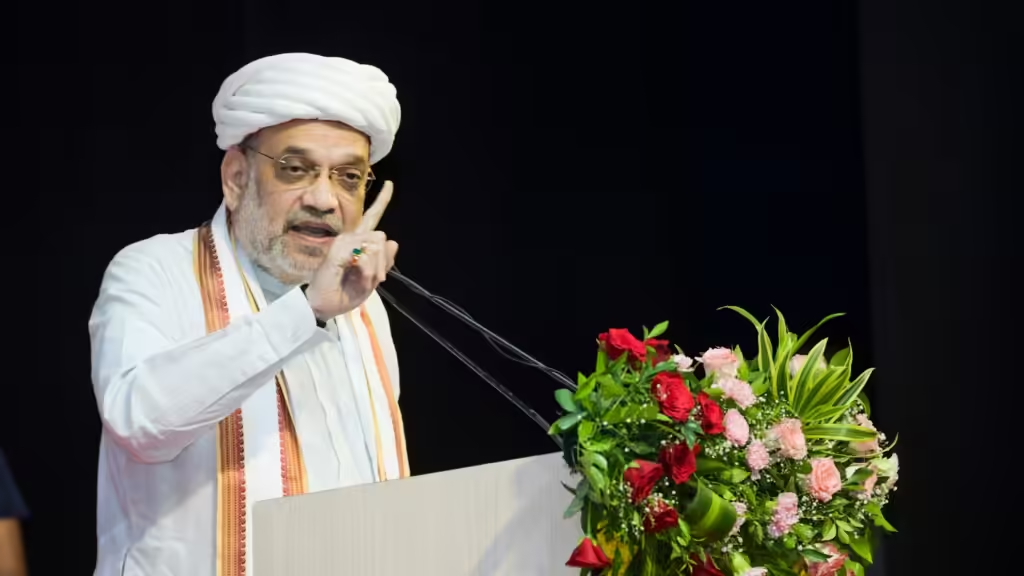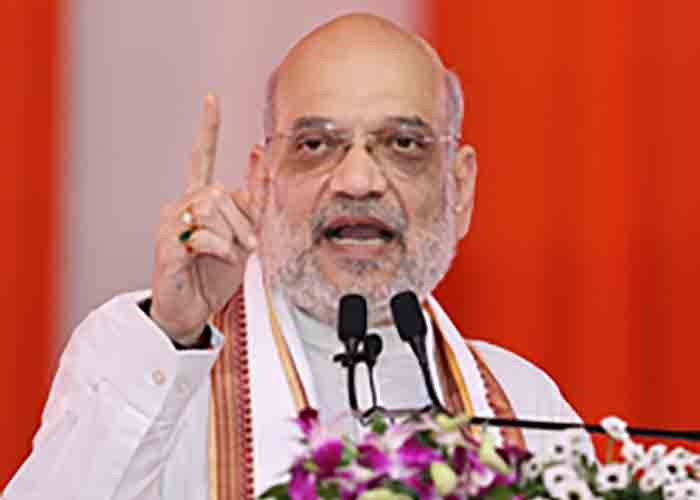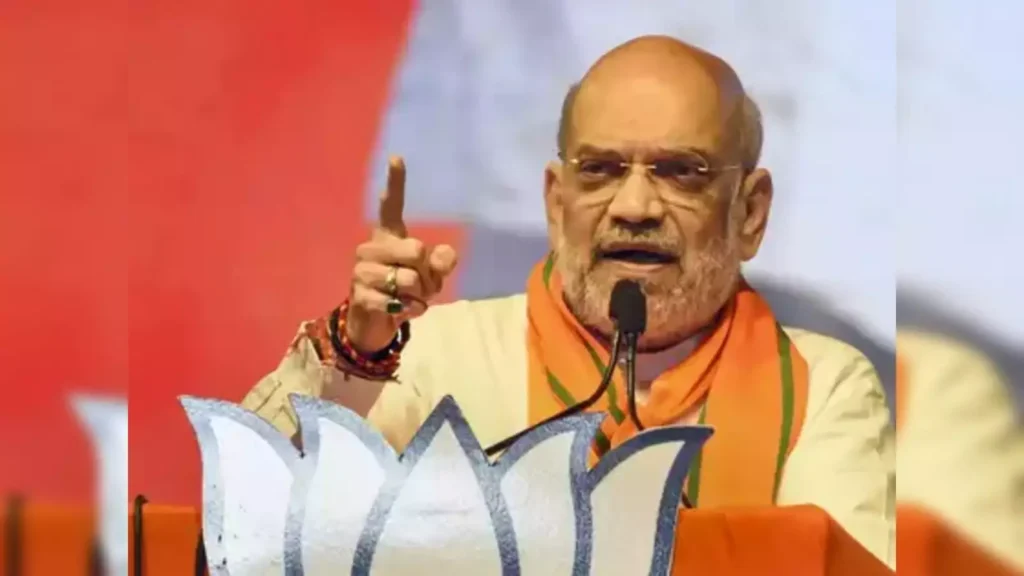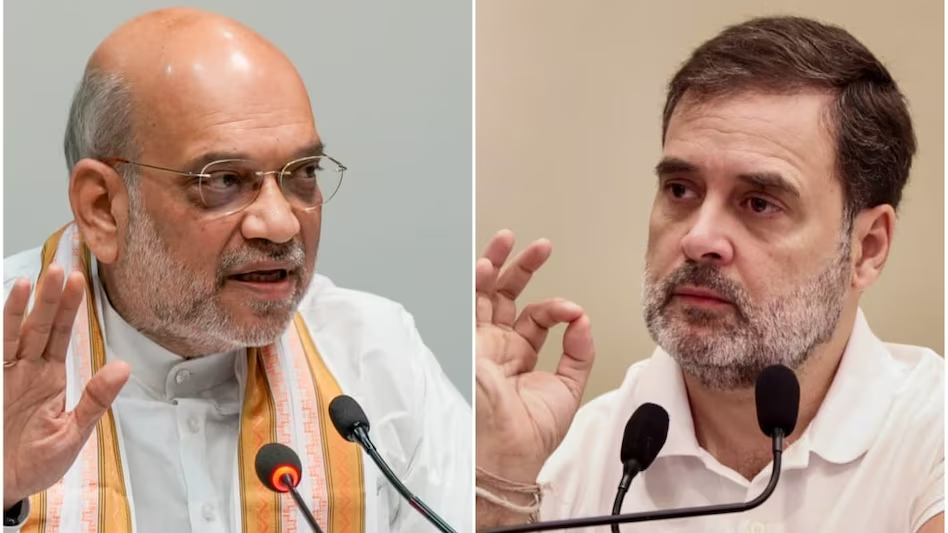Table of Contents
Union Home Minister Amit Shah has launched a scathing attack against the Congress Party over its alliance with the National Conference for the upcoming Jammu and Kashmir Assembly elections. Shah on Friday straight away posed a question to Congress leader Rahul Gandhi on the motivations and ramifications of such a political alliance, which, according to him, was potentially detrimental to the integrity of the nation.
A Controversial Alliance: Congress and National Conference
The Congress-NC alliance has evoked controversies more so due to the sensitive political context of Jammu & Kashmir. The valley has interested politics; and therefore, the coalition by Congress with NC has been viewed by many as a Political Strategy to gain consolidated votes in the region having an intricate political landscape.

But then, Amit Shah’s scathing attack on the alliance helps bring to the fore the worrying concern for national security and unity now at stake. For Shah, this alliance is more than just a political move. It actually represents a dicey move that can have long-lasting repercussions on the overall integrity of the country. During his attack, Shah said that the decision to side with NC was an open threat by the Congress party on the integrity and sovereignty of India.
Ten Questions for Rahul Gandhi
But certainly, Amit Shah did not stop at mere criticism and went further by raising ten incisive questions that he wanted Congress leader Rahul Gandhi to defend the alliance with NC through a message. The questions were very pointed and had their focus from everything like the historical stand of NC on many core national issues to the current political agenda under the alliance. Shah wanted to expose through these questions what is obviously and principally contradictive and dangerous in the possible Congress-NC alliance for him.

Among the questions, he had asked the Congress to clarify its stand on Article 370, an article abrogated by the present regime in 2019. He also asked for its stand vis-à-vis separatism in Jammu and Kashmir and how it goes against national security. Shah’s question was not rhetorical but to extract a public clarification from the Congress leadership on its alliance with NC.
National Security Concerns
The first argument which has been put forth by Amit Shah pertains to the issue of national security, which has arisen from this Congress-NC alliance.
Jammu & Kashmir has been a territory under dispute, and therefore, this makes it an area of strategic importance. Therefore any political development in the area has a direct bearing on the security apparatus of the country. Shah’s concerns stem from the National Conference’s past stand on all sorts of issues. This party has been opposed to the abrogation of Article 370 and, in the recent past, was a strong votary of greater autonomy.

Shah argued that with the alignment of NC, Congress is undermining the efforts of the central government in fully integrating Jammu & Kashmir into India. He said it will embolden the separatist elements in the region and destablise the fragile peace that has been established since abrogation of Article 370.
Congress’s Rebuttal: Abattle of the narratives:
To the criticism by Amit Shah, the Congress leaders have defended the alliance with NC, saying the step was imperative in saving democratic fibre in Jammu & Kashmir. It is not against national security but to ensure a say for people of Jammu & Kashmir in their future, claims Congress.
Congress leaders believe that the BJP is playing its national security card to bury the many genuine political grievances, and that a heavy-handed and alienating approach towards J&K cannot continue. “It is about restoring trust and ensuring that the democratic process is upheld in J&K,” the Congress leaders contended.
Larger Political Implications
The ongoing turf battle over the Congress-NC alliance is not confined to the borders of Jammu & Kashmir; it explains something much more general about Indian politics. The BJP, under Narendra Modi’s stewardship, has consolidated image upon what it has determinedly proclaimed to be the party of national unity and security, often inverting its political opposition as threats to such ideals. The Congress-NC alliance thus gives the BJP an opportunity to enforce this narrative all the more vigorously, especially in the run-up to the general elections.
The Congress party, on the other hand, views this alliance as a means of regaining its lost influence in the land where it has had a stronghold for so long. This factor too cannot be viewed in isolation from the alliance with NC as a strategy to checkmate BJP’s quite aggressive push into national politics. As the political heat ratchets up, this Congress-NC alliance is going to be one thorny issue around which both parties will try to rally their supporters.
Conclusion: A Test of Political Will and National Unity
The Congress-NC alliance in Jammu & Kashmir would have turned into a political lightning rod from this critique of Amit Shah, reflecting wider concerns over national unity and security. With yet other assembly polls scheduled around the corner, this alliance is being observed very closely as a litmus test of political will and the future of Jammu & Kashmir’s place in the Indian Union.
The questions Amit Shah raised aim not merely at Rahul Gandhi but at a much larger question: the Indian electorate—for in the end, the latter will determine if this alliance is either a threat or a valid political arrangement. In the continuing debate, the Congress-NC alliance will remain an important issue in Indian politics, reflecting deep divisions and high stakes involved in the future of Jammu & Kashmir.
Sources: Times of India, Hindustan Times
For Latest News Updates Click Here
